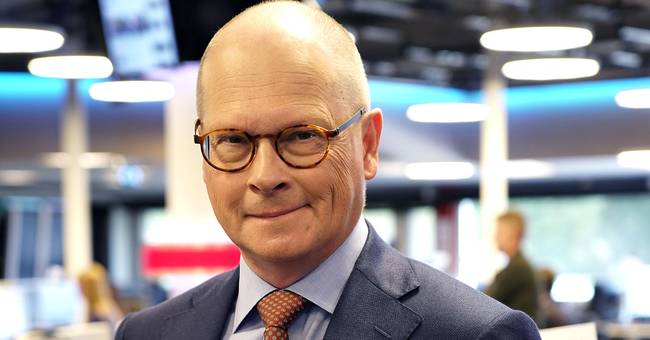It's really about pure elimination.
In SVT / Novus' survey, Magdalena Andersson sweeps the track with the possible competitors for the party leadership position.
While 48 percent of S voters from the 2018 election want to see Magdalena Andersson as the new party leader, the second most popular candidate, Lena Hallengren, only manages to gather support from 13 percent.
Mikael Damberg, who has long been singled out as a possible successor to Löfven, has only 8 percent support.
For well-known S-politicians such as Anders Ygeman and Ardalan Shekarabi, the support is even lower.
This means that it increasingly seems a given that Magdalena Andersson will be the Social Democrats' new party leader - if she wants the job.
No one else can challenge her.
Great support among voters
Of course, the Social Democrats 'party leader is not appointed through opinion polls among S-voters, but SVT / Novus' survey clearly shows what great support she has compared with other potential candidates.
It is difficult for a nomination committee to ignore.
That the support among their own voters is so great is probably related to Magdalena Andersson's confidence figures.
During her years as Minister of Finance, she has managed to build a great deal of trust among the voters and she is now the minister, second only to the Prime Minister, whom the voters have the most confidence in.
The post of Minister of Finance entails an advantage
Experience as Minister of Finance also means an advantage in that the change of party leader takes place in connection with the autumn's expected messy budget processing in the Riksdag. After this summer's government crisis, the government lacks a majority for its budget. A new Social Democratic party leader must step forward. But then support is required from both the Left Party and the Center Party, which can be a difficult task.
When Stefan Löfven resigns after the Social Democrats' party congress, new rounds of presidencies will take over.
In order for a new Social Democrat leader to also be able to become Prime Minister, he or she must be released by the Riksdag.
It is likely that such a prime ministerial vote will have a direct link to the subsequent budget vote.
Without having secured support from V and C, it will probably be difficult for a new S leader to be elected prime minister, and in the next support to get the budget through the Riksdag.
Internal requirements for more open process
Sweden has never had a woman in the post of Prime Minister and several Social Democratic debaters have in recent days emphasized the importance of the party getting a female party leader.
It could thus also speak in Magdalena Andersson's favor.
Among the S-voters who were asked in SVT / Novus' survey, however, this is not a decisive question.
A clear majority does not think it is important that Löfven's successor is a woman.
No, 54 percent answer, while 37 percent answer yes.
Internal demands have also been made for a more open process with more member influence.
But neither does it seem to have any major support among voters.
Every second S-voter (50 percent) thinks it is good as it is today, while 33 percent want to see more of member influence, for example through sample elections or hearings of the candidates.

